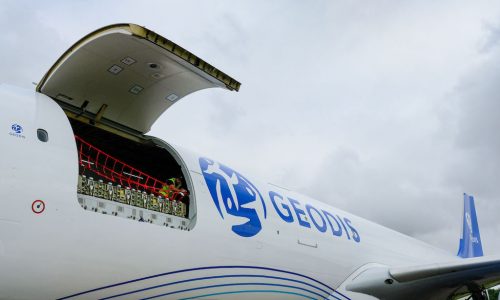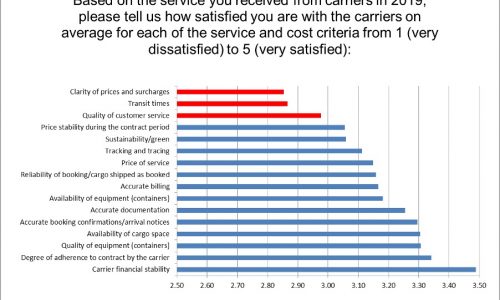
DHL Freight is strengthening its commitment to reducing greenhouse gases and pollutants.
In line with the company’s GoGreen program, the freight specialist is publishing a new white paper to introduce measures, services, and solutions that help road freight customers improve sustainability in their supply chains.
By 2050, Deutsche Post DHL Group aims to reduce all logistics-related emissions to zero. Important milestones on this journey have already been achieved: Compared to 2007, the Group’s CO2 efficiency has improved by 35%. By 2025, 50% of emissions are to be reduced.
The complete White Paper “Green logistics in road freight” is now available for free download in German and English at https://dhl-freight-connections.com/en/white-paper-green-logistics.Press releasePDF ( 185.7 KB )DHL Freight truckJPEG ( 1.5 MB )
Said Antje Huber, Senior Vice President Marketing & Strategy, responsible for green logistics at DHL Freight: “As a leader in logistics, we want to reduce all logistics-related emissions to zero.
“This is a path that requires courage to test technologies and alternatives, but it also requires persuasion in order to get business partners on board to drive change together.
“We can reach real decarbonization in logistics only in collaboration with all players.”
DHL Freight’s portfolio contributes to this goal with a wide range of solutions that also help customers improve their environmental footprint through logistics.
The company is already setting decisive standards in road freight today. For example, with the premium service DHL Freight Eurapid, groupage shipments can reach their destination in a climate-neutral way – within 24 or 48 hours throughout Europe.
When it comes to creating transparency in terms of emissions, digital tools enable appropriate CO2 monitoring along the supply chain. With the support of certified GoGreen specialists from DHL, customers can evaluate various transport scenarios in terms of their CO2 emissions and optimize them according to their needs.
In addition, DHL Freight is focusing on alternative engine technologies in its vehicle fleet. The company already has 30 LNG trucks, that burn 15% less fuel than diesel vehicles, on Europe’s roads.
The company is also testing electric trucks in heavy-duty transport and is promoting hydrogen technologies, as the proportion of alternative engine systems in the DHL fleet, those of with service partners, is aimed to continue to increase.
Rail transport also remains important for sustainability and DHL Freight will focus much more on this sector. Combined transport solutions are worthwhile – especially on long-haul routes – not only economically but also ecologically. DHL Freight would like to offer its customers additional individualized solutions in the future.
In situations where emissions cannot be avoided at present, DHL Freight invests in recognized climate protection projects to ensure certified compensation. This contributes to the climate neutralization of the entire supply chain.

